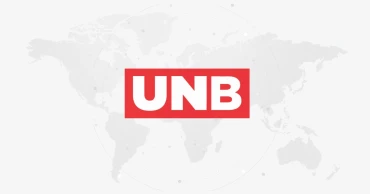Bangladesh Central Bank
Bangladesh govt aims to increase money supply over next two fiscals
The government of Bangladesh has fixed a target to increase the money supply to 16.5 percent from the existing 15.6 percent in the next two fiscals.
As per a government document, in the 2022-23 fiscal the rate of money supply is at 15.6 percent.
For the next 2023-24 fiscal the government has projected to increase the rate to 16 percent and for the 2024-25 fiscal it will be 16.5 percent.
Academically, the enhancement of money supply might increase inflation. This kind of target of ‘broad money’ growth would further invite inflation in the country.
Also read: Deposits at IBBL 'completely safe': Bangladesh Bank
"Broad money" – or M2 – is a calculation of the money supply that includes all components of "narrow money", such as cash and checking deposits, and also "near money" such as savings deposits, money market securities, and other time-related deposits.
M2 is a broader measure of money supply and is being closely watched as an indicator of money supply and future inflation, and as a target of central bank monetary policy.
If broad money exceeds nominal GDP growth, academically, commodity prices will take another steep jump, leaving limited-income consumers and the poor to bear the brunt of the increasing squeeze on the cost of living.
In 2020-21 fiscal year the money supply was 13.6 percent.
ReadMore: Bangladesh seeks zero tariff on apparel exports to US at 6th TICFA meeting
In the 2021-22 fiscal the proposed money supply rate was 13.8 percent, but the revised rate was 15 percent.
It was increased because of the government stimulus packages to inject money in various sectors to run their activities for offsetting the impact of COVID-19 pandemic that stalled the economic activities of the whole world, as well as in Bangladesh.
Apart from the impact of COVID-19 pandemic, the Russia-Ukraine war, and sanctions and counter-sanctions caused another deadly impact on the world economy as world trade was seriously damaged due to this.
The prices of essential commodities, fuel oil and transportation costs increased heavily. Russia and Ukraine were one of the main sources of Bangladesh for various essential items, like wheat.
Read More: Nagad is a Digital Bangladesh success story: Mustafa Jabbar
As a result, the people of the country have to spend more money in purchasing their day to day essential items.
To lessen the burden of fixed income group, low income group and lower middle income group people, the government has taken various types of steps.
These include selling rice among 50 lakh families at the rate of Tk 15 per kg and providing special family cards to one crore people by which they will be able to procure essential commodities at fair price.
3 years ago

